Camping etiquette isn’t anything new. On the list of unspoken camping rules, leaving no trace by keeping your campsite clean, turning off bright lights during quiet hours, and putting your fire out are at the top of the list.
Also necessary for good campground etiquette is keeping the noise down for your neighbors, who may be sleeping or, frankly, just don’t care for your loud music. A military veteran was accused of breaking this etiquette rule by backpackers hiking into the campsite, even though he was doing it for one very good reason.
He took to the internet to ask who was in the wrong, and people didn’t hold back.
Did his fellow campers have a point? Here’s how it all went down:
Backstory

The camper, or original poster (OP), is a 38-year-old man who has PTSD from his time in the military. Due to this, he struggles with silence, which can terrify him depending on the conditions.
To help him cope, OP’s wife bought him a waterproof Bluetooth speaker as a graduation present. He always adds it to his camping checklist to listen to audiobooks.
OP keeps the volume of his speaker just loud enough to be heard at his campsite, which his therapist calls “sound therapy” for OP’s PTSD. He can’t use earbuds or headphones because they can’t withstand the conditions he camps in.
See also: The Great Outdoors: Why Family Camping Is the Best Way to Bond and Unplug
What happened?
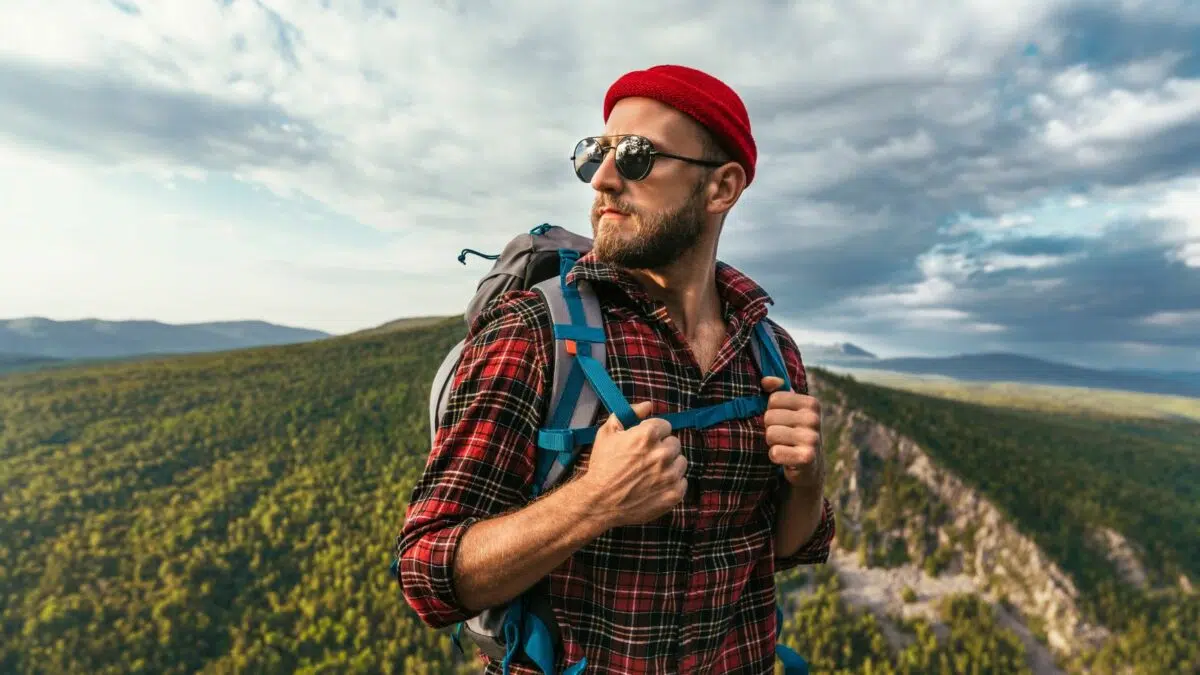
OP was not at a public campground, nor was he at an official shelter, national park, or state park. Instead, he was on national forest land. Within the national forest, he typically needs to make his own camp or visit backpacking-only camps that are hiked into.
When two backpackers passed by OP’s campsite, they called him rude for using the speaker at his campsite, citing that “backpacking into a camp is to prevent electronic pollution.”
How did OP react?

OP told the campers to continue hiking up the trail for a camping spot to avoid the noise because he was settled for the night and wouldn’t be going any further. The other campers grumbled at OP’s camping etiquette but continued on.
The interaction left OP wondering if using his speaker was truly poor camping etiquette or if the older campers were the ones in the wrong. The internet had some strong opinions:
OP has a medical need for noise
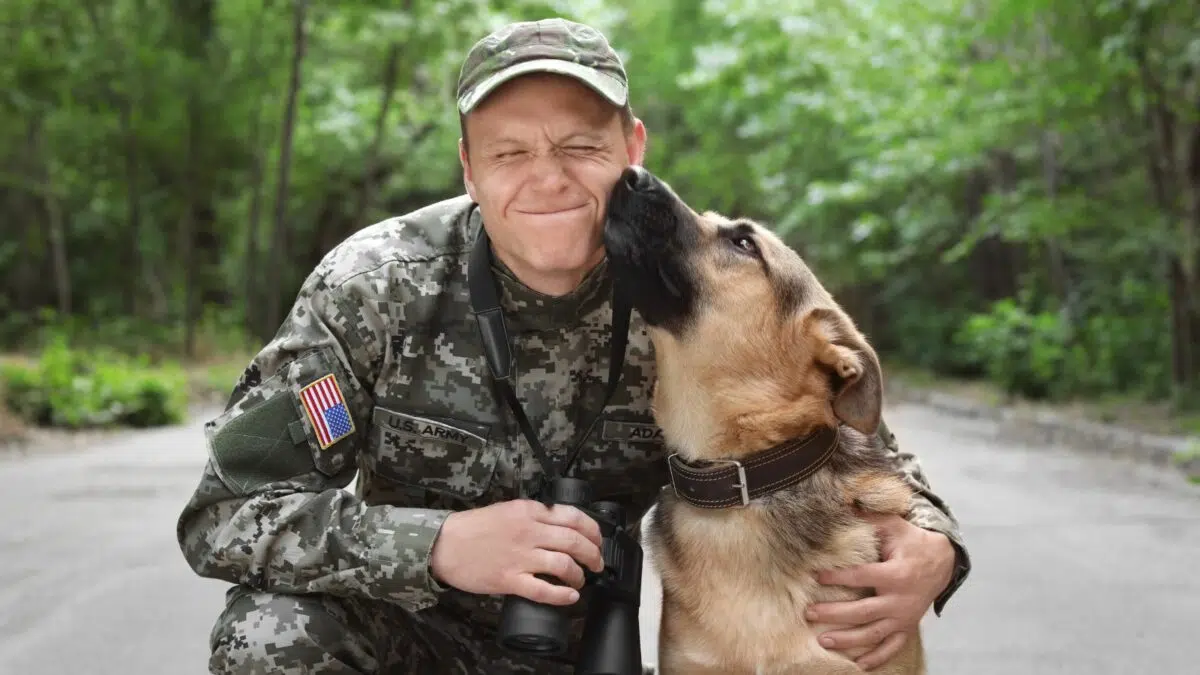
“Those two men were entitled to their opinion—they choose, one assumes, to leave behind all technology when backpacking, as is fine for them.
“You have a medical need for the white noise of a human voice speaking in a soft, regular cadence in order to remind your brain that you are safe. This is no different to if you had a service dog trained to prevent or bring you out of PTSD episodes, and you took your dog backpacking with you—people might equally object to you doing that.”
Audiobooks aren’t that different from talking to other people at a campsite
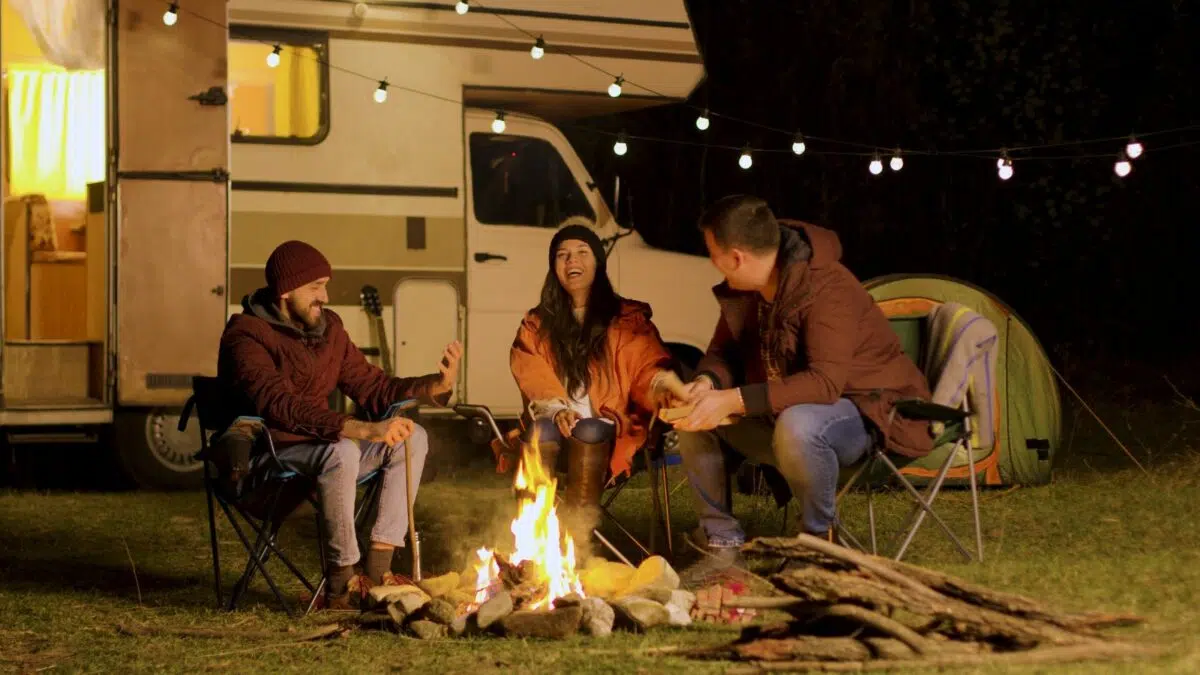
“Storytelling around the fires goes back to the start of humankind and possibly even adjacent humankind. A voice is not an electronic product, really. In the middle of a camp, that’s what people would be doing long before electronics. Seems really picky calling it that. And more policing others because they themselves are missing their ‘electronics.'”
See also: The 15 Best Camper Vans for Your Next Adventure
The fellow campers intruded on OP’s campsite therefore, they have no right to complain
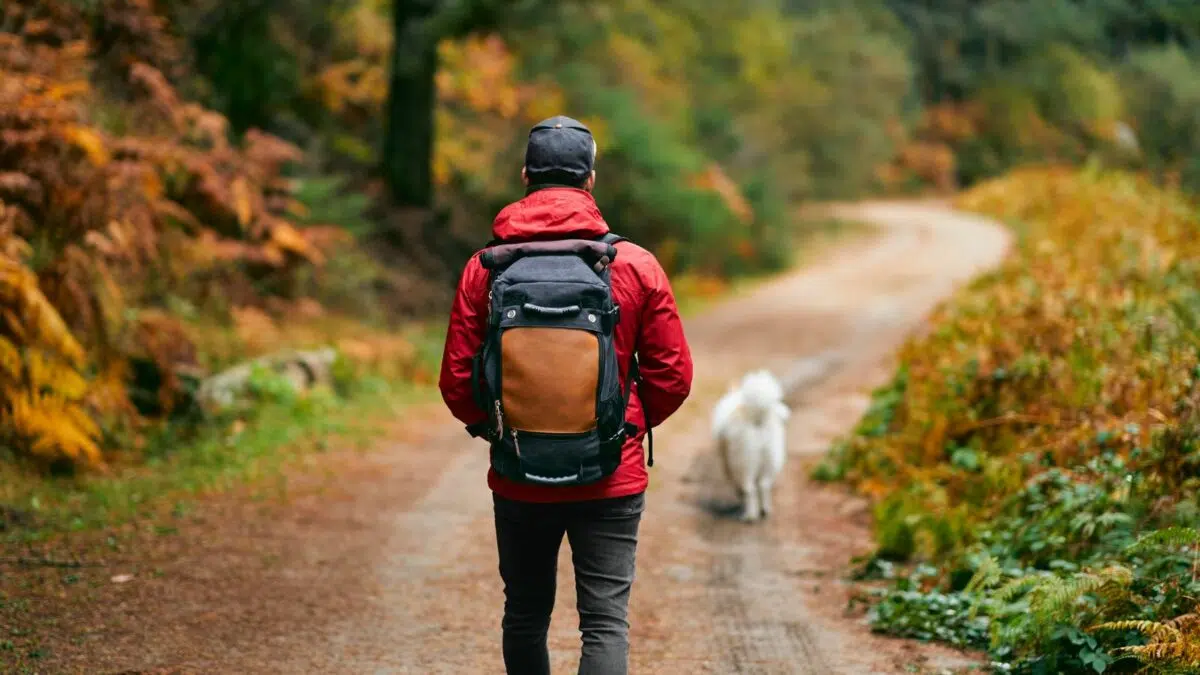
“There are no designated campsites, OP just picked a spot in the woods. The other campers chose to enter the space and complain. If you want quiet, go elsewhere. If you want quiet time in the library, do you go to where kids are laughing at storytime or just find your own spot somewhere else?”
OP may not be completely honest about his sound levels

One individual did some internet sleuthing and found a comment OP made a few days prior, which seemed to cast a different light on his speaker usage. OP’s comment said, “I pack a Bluetooth speaker with me everywhere. I have one that can be heard quite a ways away, but I typically keep it low-key if people are around. Music has been soothing since its invention, so if you don’t like it, vet your campgrounds better. (Not safe from my evil speaker. I even backpack, muahahaha!)”
As added by the internet sleuth, “Makes me think you are downplaying how loudly you play stuff when you think no one else is around. This is a problem in the backcountry because you often don’t know how close or far away people are until they walk right by you. If you’re taking proper bear precautions, you don’t need to be making a lot of noise while you’re in your tent for safety reasons.”
If OP is camping alone, having the speaker is safer than headphones
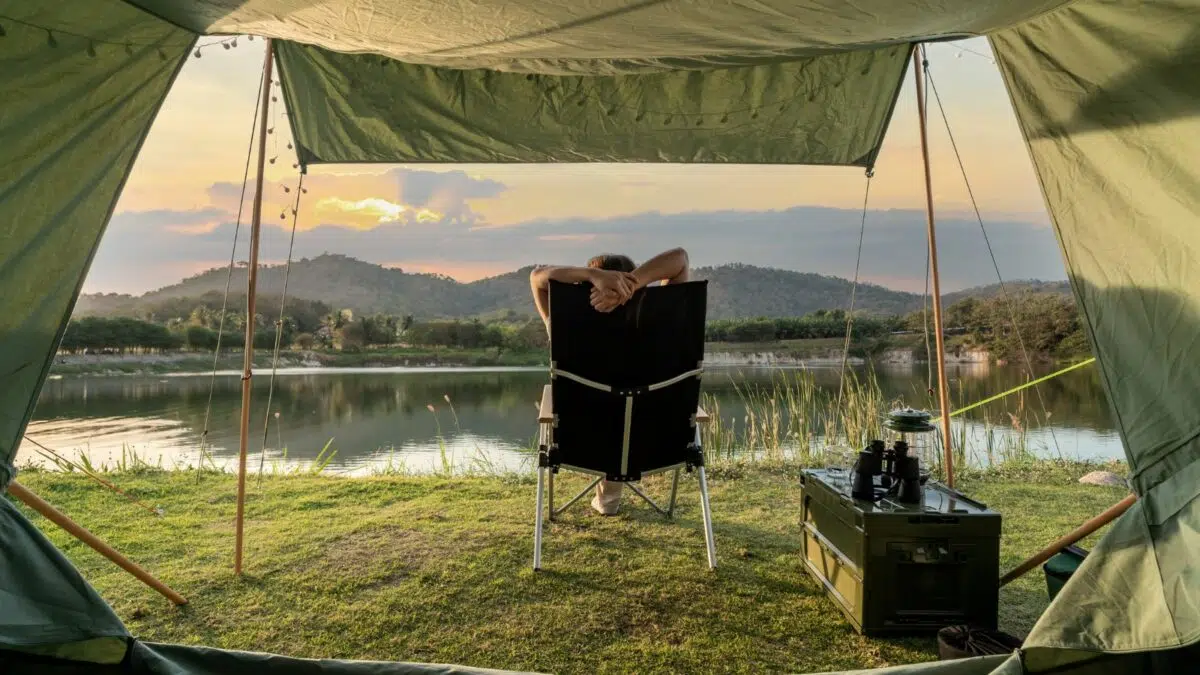
“The woods by me are bear country. It actually could be pretty dangerous to camp alone in silence with earbuds blocking out all your hearing.
“If OP is similarly in bear country alone, then he should absolutely have sound around him. If he doesn’t have speakers, then he should still be making audible noise by talking or singing to himself.”
This article was written and syndicated by What the Fab.
Are all the National Parks worth going to?

Let’s admit it: some National Parks in the United States just don’t live up to the hype. Believe it or not, the Department of the Interior agrees.
These are the eight worst National Parks in the United States.
Don’t skip these cheap US beach vacations

You don’t need to go far to see stunning ocean views. These affordable US beach vacations are so cheap that you’ll want to take them all.
Discover 11 inexpensive beach vacations in the United States that rival international islands.
Did your city make the cut?
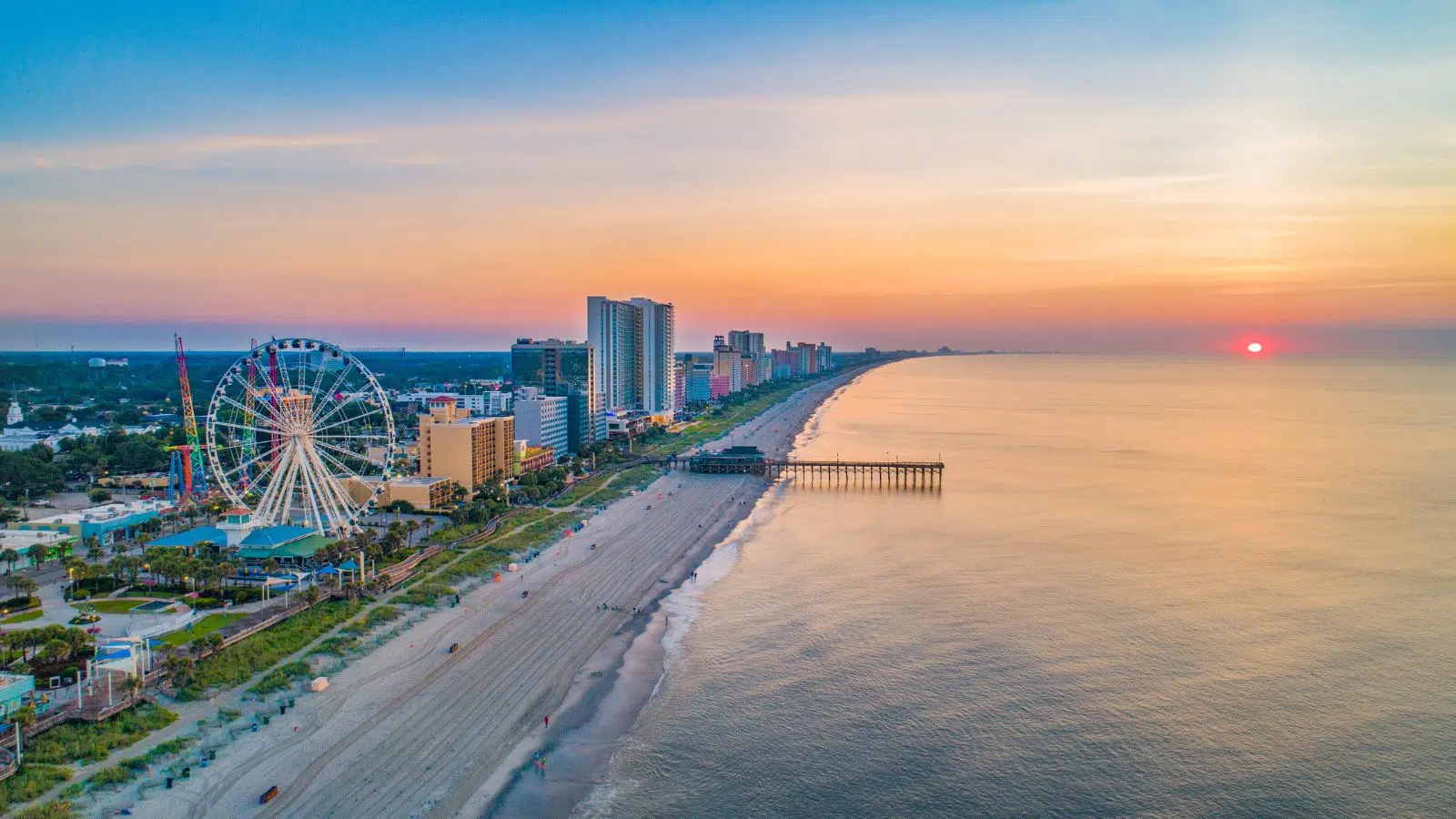
The United States is full of beautiful, diverse cities that offer everything from rich history and free museums to gastronomic dining and vibrant nightlife.
Travelers have decided: these are the 25 most beautiful cities that the US has to offer.

Elise Armitage is an entrepreneur and founder of What The Fab, a travel + lifestyle blog based in California. At the beginning of 2019, Elise left her corporate job at Google to chase her dreams: being an entrepreneur and helping women find fabulous in the everyday. Since then, she’s launched her SEO course Six-Figure SEO, where she teaches bloggers how to create a passive revenue stream from their website using SEO. Featured in publications like Forbes, Elle, HerMoney, and Real Simple, Elise is a firm believer that you can be of both substance and style.



